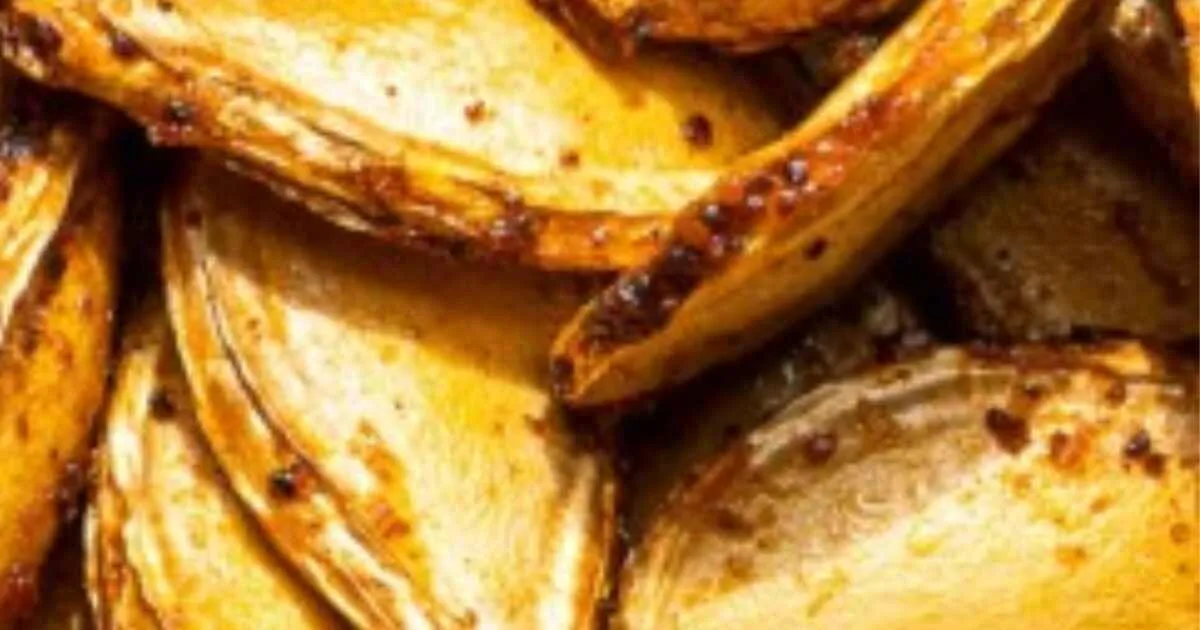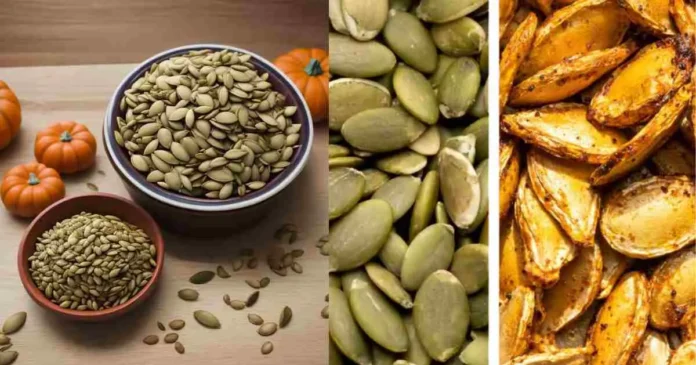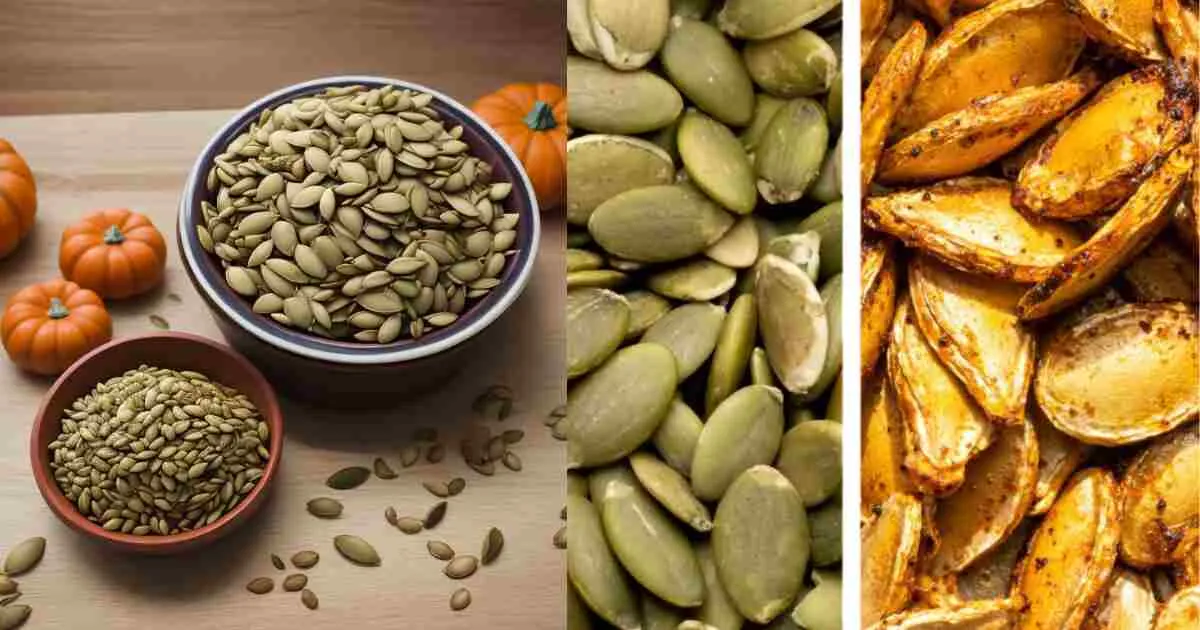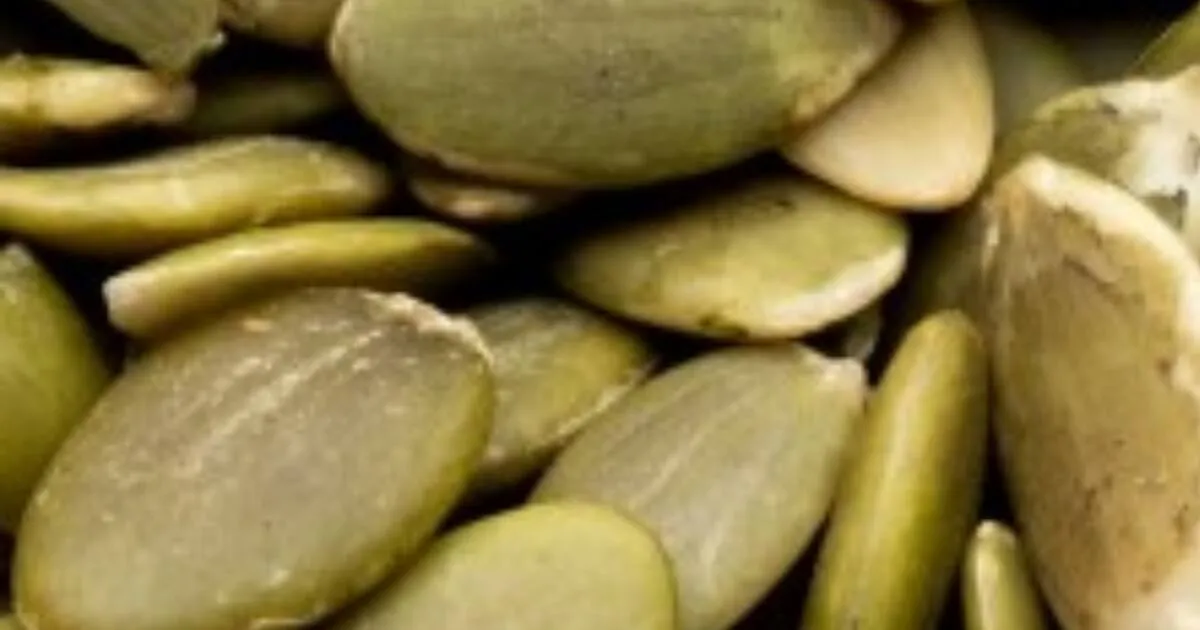Which is healthier: pepitas or pumpkin seeds, when it comes to snacking, pepitas and pumpkin seeds often find their way into the discussion. Both are popular choices for health-conscious individuals, boasting various nutritional benefits. But which one is truly healthier? Let’s delve into the details and compare the two to find out.
1. Introduction to Pepitas and Pumpkin Seeds
Brief Definition
Pepitas and pumpkin seeds are both derived from the pumpkin plant, scientifically known as Cucurbita pepo. While they share a common origin, there are subtle differences between the two in terms of taste, appearance, and nutritional composition.
Nutritional Value Comparison
Before determining which one is healthier, it’s essential to analyze their respective nutritional profiles to understand their impact on health.
2. What are Pepitas?
Definition and origin
Pepitas are the hulled kernels of pumpkin seeds. They are typically smaller and greener in color compared to their counterparts. Pepitas have been consumed for centuries and are a staple in Mexican cuisine.
Nutritional Content
Pepitas are rich in essential nutrients such as protein, fiber, healthy fats, vitamins, and minerals. They are particularly high in zinc, magnesium, and iron, making them a nutrient-dense snack option.
3. What are pumpkin seeds?
Definition and origin
Pumpkin seeds, also known as “pepitas” in some regions, refer to the entire seed found within the pumpkin’s inner cavity. They are white in color and have a slightly nutty flavor. Pumpkin seeds have been consumed as a nutritious snack for generations.

Nutritional Content
Similar to pepitas, pumpkin seeds are packed with essential nutrients, including protein, fiber, healthy fats, vitamins, and minerals. They are particularly abundant in magnesium, phosphorus, and manganese, contributing to overall health and well-being.
Nutritional Value of Pumpkin Seeds
- Lots of Good Stuff: Pumpkin seeds are full of good things like nutrients, calories (which give us energy), fats, proteins, and fiber.
- Energy Boost: For every 100 grams of pumpkin seeds, they give us around 573 calories to keep us going strong.
- Healthy Fats: The fats in pumpkin seeds are mostly the good kind, called polyunsaturated and monounsaturated fats, which help keep us healthy.
- Loads of Vitamins: Pumpkin seeds have lots of different vitamins, like vitamin B1, B2, B3, B5, B6, B9, C, E, and K, which are all good for different parts of our bodies.
- Important Minerals: They also have minerals like calcium, iron, magnesium, manganese, phosphorus, potassium, sodium, and zinc, which help our bodies grow and stay strong.
4. Health Benefits of Pepitas
- High in Nutrients: Pepitas are a nutrient powerhouse, containing a wide range of essential vitamins and minerals necessary for optimal health. They are especially beneficial for individuals following a plant-based diet.
- Potential Health Benefits of Pepitas : Research suggests that pepitas may offer various health benefits, including improved heart health, enhanced immune function, and better blood sugar control. Additionally, their high fiber content promotes digestive health and aids in weight management.
- Role in Weight Management: The combination of protein, fiber, and healthy fats in pepitas can help promote feelings of fullness and satiety, making them a satisfying snack option for those looking to manage their weight.
5. Health Benefits of Pumpkin Seeds
6. Comparison of Nutritional Content
Macronutrients Comparison
Pepitas and pumpkin seeds are both rich sources of protein and healthy fats, making them suitable choices for individuals looking to increase their nutrient intake. However, pepitas tend to be slightly higher in protein, while pumpkin seeds contain more fat.
Micronutrients Comparison
In terms of micronutrients, both pepitas and pumpkin seeds provide essential vitamins and minerals necessary for overall health. While their specific nutrient profiles may vary slightly, they are both excellent sources of nutrients like zinc, magnesium, and iron.
Here’s a table comparing the nutritional content of pepitas and pumpkin seeds:
| Nutrient | Pepitas | Pumpkin Seeds |
|---|---|---|
| Protein | High | High |
| Fiber | High | High |
| Healthy Fats | Present | Present |
| Vitamins | Rich in vitamin E | Rich in vitamin K |
| Minerals | High in zinc, magnesium, and iron | Rich in phosphorus, manganese, and copper |
| Antioxidants | Present | Present |
| Omega-3 fatty acids | Limited | Present |
In summary, both pepitas and pumpkin seeds are rich in protein, fiber, healthy fats, vitamins, minerals, antioxidants, and omega-3 fatty acids, making them valuable additions to a balanced diet. However, they may vary slightly in specific nutrients, offering unique health benefits.
Here’s a comparison table highlighting the differences between pepitas and pumpkin seeds:
| Feature | Pepitas | Pumpkin Seeds |
|---|---|---|
| Source | Pepitas are the inner kernel of pumpkin seeds. | Pumpkin seeds are the seeds found inside pumpkins. |
| Appearance | Small, flat, green seeds without shells. | Larger, white seeds often encased in a white shell. |
| Flavor | Mild, nutty flavor with a slightly sweet undertone. | Nutty flavor with a bit more earthiness. |
| Culinary Use | Commonly used in Mexican cuisine, it is often toasted. | Widely used in various cuisines, commonly roasted. |
| Nutrition | Rich in healthy fats, protein, fiber, and minerals. | High in protein, healthy fats, vitamins, and minerals. |
| Health Benefits | Good source of zinc, magnesium, and iron. | Beneficial for heart health and immune system support. |
| Availability | Easily available in health food stores and online. | Found in grocery stores, health food stores, etc. |
| Shell | Shell-free, as they are the inner part of the seed. | Usually enclosed in a white, fibrous shell. |
| Texture | Soft and chewy. | They can be crunchy or chewy, depending on how they’re prepared. |
7. Pepitas vs. Pumpkin Seeds: Which is Healthier?
Factors to consider
Determining which is healthier ultimately depends on individual preferences and dietary needs. Both pepitas and pumpkin seeds offer numerous health benefits and can be incorporated into a balanced diet.
Conclusion Based on Nutritional Analysis
While pepitas may have a slight edge in terms of protein content, pumpkin seeds are richer in omega-3 fatty acids and antioxidants. Therefore, incorporating both into your diet can provide a diverse array of nutrients and maximize health benefits.
9. Ways to Incorporate Pepitas and Pumpkin Seeds into Your Diet
Recipes and serving suggestions
There are countless ways to enjoy pepitas and pumpkin seeds in your daily diet. Whether sprinkled over salads, added to baked goods, or enjoyed as a standalone snack, these versatile seeds can enhance the flavor and nutritional value of any meal.
10. Side Effects and Precautions
Potential Allergies
It’s essential to note that some individuals may have allergies to pepitas or pumpkin seeds. If you experience any adverse reactions after consuming either, it’s best to avoid them and consult with a healthcare professional.
Moderation in consumption
While both pepitas and pumpkin seeds offer numerous health benefits, moderation is key. Like any food, excessive consumption may lead to unwanted side effects, such as digestive discomfort or weight gain. Therefore, enjoy them in moderation as part of a balanced diet.
11. Conclusion
In conclusion, both pepitas and pumpkin seeds are nutritious snacks that offer various health benefits. While they differ slightly in terms of nutritional composition, incorporating both into your diet can provide a wide range of essential nutrients and support overall health and well-being.
FAQs
Are pepitas and pumpkin seeds the same thing?
While both are derived from the pumpkin plant, pepitas refer specifically to the hulled kernels, whereas pumpkin seeds encompass the entire seed.
Can pepitas and pumpkin seeds help with weight loss?
Yes, both pepitas and pumpkin seeds are rich in protein, fiber, and healthy fats, which can promote feelings of fullness and aid in weight management when consumed as part of a balanced diet.






